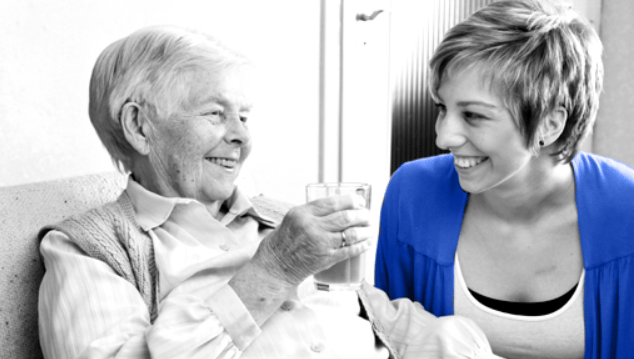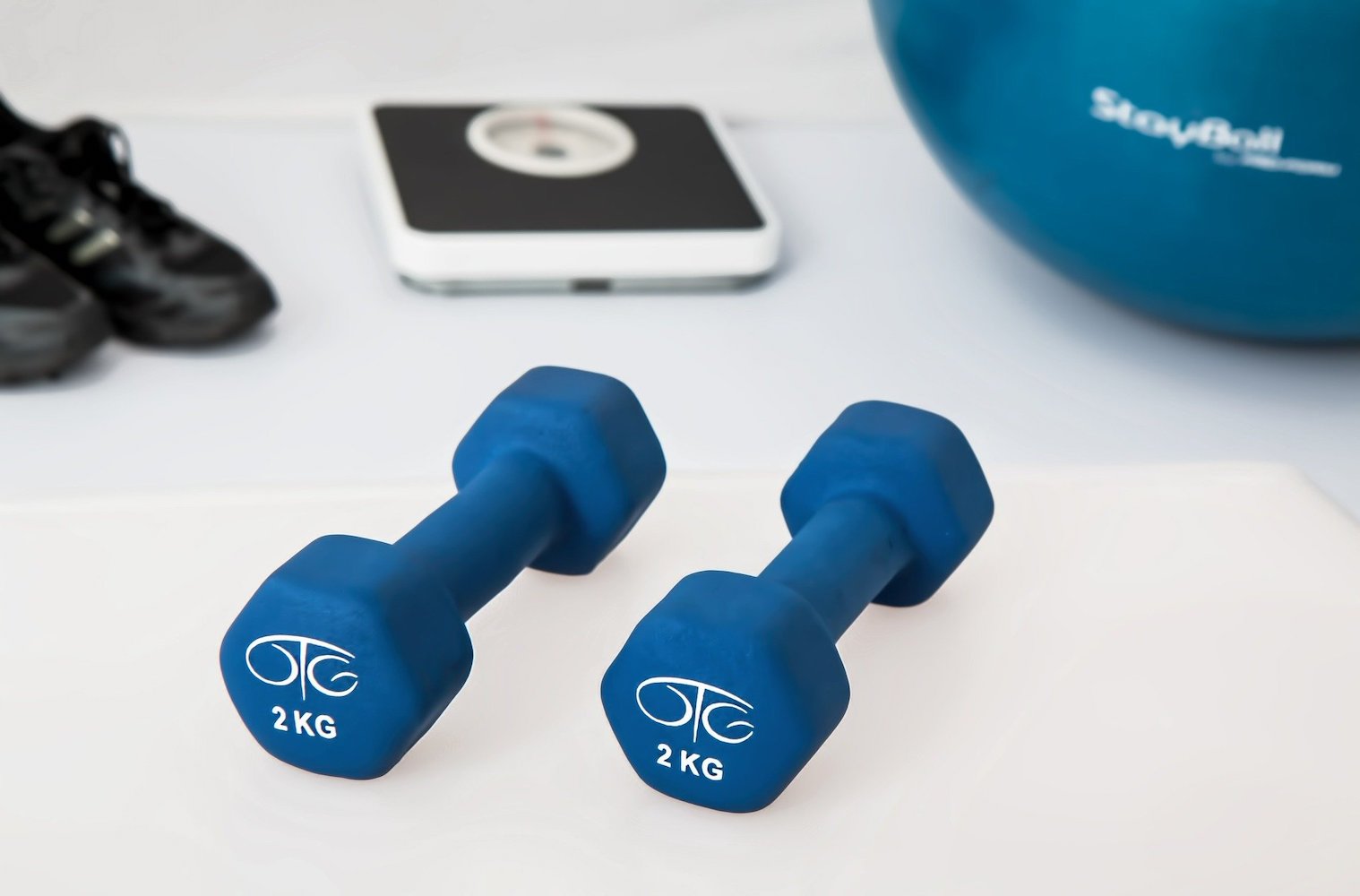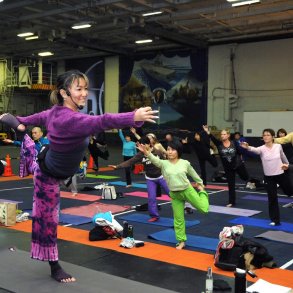By Anna Betz for Enlivening Edge
This is part 3 of a 3-part interview series. Part 2 is here.
Anna: What is your work in the UK right now?
Jos: My work in the UK is developing on different levels. For the last 5 years I have frequently been invited to all kinds of conferences. People meet each other who know about Buurtzorg and say this could be helpful. On a practical level, Brendan from Public World in England and people in Scotland are coordinating activities. There are more than 10-15 organisations now, including trusts and other parts of the National Health Service who want to work together.
We are discussing at the moment what and how can we support this new development and how can we create a platform for people who want to do something with those ideas. How we can connect them and how we can create something like a business model to support as many people on such initiatives as possible. I am in England almost every month now for a conference, a workshop or just to discuss the progress. In London we are working with Guy’s and St.Thomas’ NHS Foundation Trust hospitals. There is a whole list of different people and organisations now who show interest. Public World is starting programs with these organisations.
In Scotland, the Scottish Ministry is interested in some projects. So this afternoon I will have a call with someone about the progress in Scotland. Last week I had a call from Northern Ireland. They would also like us to support a project there.
Anna: How can people in the UK learn about what’s happening in their cities? Also, is there any way for those people who don’t work in one of the NHS organisations you are already working with, to connect to what’s happening?
Jos: Yes, that is one of the discussions we will have next weekend. Brendan from Public World is for me at the moment the person who is coordinating it. We get a lot of emails from England and I connect them to Public World. What we did with 30 different projects all over Japan, for example, is to create one platform where they exchange experiences a few times a year. From this platform now more and more organisations are working with this concept. That’s the way it worked in Japan.
Anna: As healthcare and social care are coming together in the UK, would it involve social workers as well?
Jos: Last weekend I had a message from the head of social care of either Scotland or England who told us they want to visit as a delegation. So I want to connect them. There are people involved from social care and from nursing care.
Anna: Where do you see the largest potential in the UK?
Jos: I think there should be some kind of redefining of social care and primary healthcare. The payment system, the activities which are now called nursing care, social care or primary healthcare are seen as different matters because they are not seen from the perspective of the patient, but from the perspective of the system.
If you want to have a patient-centred way of working, you need to redefine what kind of problems patients have and how you can solve that.
I think there should be more combinations between social care and nursing care. It doesn’t mean that everything social care is doing now under the umbrella of social care should be done differently.
At the moment there is a discussion happening in Holland. One of the biggest homecare organisations (in British terms known as social care) is going bankrupt. They asked us if we would like to take over this organisation. There are 11.000 people working for that organisation which is the biggest homecare organisation in Holland, and it is a very commercial organisation. So we said No. They actually used to be a cleaning company. A cleaning company is doing cleaning. We said, ‘No, you should support people. Of course the house has to be cleaned.’ Our perception of what is needed is clearly different.
So now they asked us if we could change it into some kind of social innovation. So the focus now is: ‘How can we support people in organising their household or in participating, activating, and mobilising, so they can do what they can do and they are supported in what they can’t do.’
Another way of thinking changes the primary aim and leads to another way of working
Jos: Also this homecare organisation has a lot of overheads now. We said we would come to work with groups of homecare workers who are organising it themselves. They would become more like cooperative groups who we want to connect with our Buurtzorg teams.
Now they are just cleaning, and after cleaning they go home, and they only get paid for the hours they are cleaning. We say, “No if you want to support people you have to think about and talk about how you can support them.”
The cleaning is not the most important thing but the way people feel supported is the most important thing. So that’s what we want to change.
We said that this was an opportunity to get this work out of the cleaning company mindset which has been running the company for the last 10 years. I think this is a real shame for Holland. These same workers who have been working for 10 years in this field had their wages reduced by 20-30%. They are the lowest-paid workers and most of them are women. The council’s procurements are for 2 or 3 years for cleaning and then workers have to go from one employer to another employer who typically offer lower wages because they want to have a profit margin. Clearly this is a race to the bottom which I said had to stop.
There was a debate two weeks ago in parliament where everyone moved towards our thinking. A fund of 60 million was created and we agreed on an innovation budget. By making it a social innovation, we can get supported.
Now we need to take the discussions into the 307 municipalities to talk with those who are responsible for this field. It is quite difficult to explain to those from the municipalities, what the difference is between cleaning as a job and supporting people so that they can help themselves again. They have been used to think that driving down the tariff for cleaning as low as possible was the primary aim.
Our argument is that the costs are actually not going up, they are going down, if you focus on people and relationships, but if you are focusing on hours and on cleaning, then the costs will go up.
I have these discussions all the time with people from the municipalities, government, and the unions and try to connect them altogether. I tell them if you want to have a sustainable government with a sustainable way of doing health and social care for the next 10 years it needs to focus on participation and supporting people in a way that enables them to connect with their environment. So I think that is what is necessary in England, too.
Anna: You have an insurance-based system in Holland. How can we retain a socialised system in the UK using your model, rather than going towards privatisation of different services which is already happening?
Jos: A socialised system is actually an advantage. What I said is that we are repairing the damage of the privatised system. People said to us, You are there because of the market. The logic of the market helped you to start. That is one perception. But I said, ‘No, if there hadn’t been a market, we wouldn’t be necessary. We are actually repairing the system’.
There is another deeper layer to this discussion which is that the whole market idea is damaging healthcare. The socialised system you have in England is actually an advantage.
If the NHS could create spots or experimental spaces that can get rid of their bureaucracy and can get rid of their very rigid way of doing things, they could learn from these experiments, and they could change the NHS. That would be my idea.
I had the same enquiry from Norway. Norway has a very centralised public health system. They also asked us, Can we do this in Norway? In Sweden, the municipalities are going to hire us. They started a market-based model, and then discovered how one provider was more terrible than another. They employed a lot of uneducated people. So that is what is happening in a lot of countries.
I think England now has to build another business model. What I learnt is that it is not very clear how much money is spent on direct cost or indirect costs. Because of the complexity of the system, a lot of money flows to all kinds of overhead costs like the running of agencies.
That is the same for a lot countries: by creating all this complexity, 20-40% of the money is going to all  the wrong places. We said we can reduce the complexity and create a system which is based on the relation between the care giver and the patient. That is how it can reduce the overhead costs and it can also reduce the tension and the annual budgets on a national level.
the wrong places. We said we can reduce the complexity and create a system which is based on the relation between the care giver and the patient. That is how it can reduce the overhead costs and it can also reduce the tension and the annual budgets on a national level.
People in Holland were initially afraid if nurses decide themselves how much care was needed, that it would lead to higher care needs. However, we have proof now that the opposite happens. I would like to experiment with this in other countries.
We are starting with four projects in the UK and will see what happens. I see them as a kind of transition projects to show how the results can be different, in quality and quantity.
Anna: In an NHS Trust, who needs to be on board for this kind of change?
Jos: It would need top-level engagement, and it would also help if this awareness were also there at the ministry. Nurses understand this, but then we have different people at different levels with all their vested interests in the structures and systems they have built. I was lucky that I had this minister in Holland in 2007 who said ‘yes this needs to be happening’. I have spoken to the minister of health in Scotland and she understands.
In the NHS there a lot of leaders and CEO’s who have been nurses which is helpful. They just have to go back to their basic values. The new management thinking with complex layers of bureaucracy and payment systems is not really very helpful.
Anna: How do you see the new role for managers and senior leaders in a Buurtzorg style model in the UK?
Jos: The NHS is built on a power hierarchy and is a rigid structure. The first thing they have to understand is that if they keep on working this way, they won’t be needed anymore within 5-10 years because the world is changing.
In Holland at the moment, 50% of the healthcare organisations are working with concepts based on self-organisation.
If you look at the general ideas about organising and agile working, you can see that they are moving forward and can’t be stopped. I think leaders need to think seriously about the implications of this development for the future. The ones who are on board will become natural servant leaders or something like that. I think the ones who don’t will not survive in the system.
Part of the management team is still thinking in terms of traditional roles and part of the management system is thinking of new ways of doing things. So they should be given space to experiment with their new ideas. A lot is changing at this moment, not just in healthcare. The same discussions are happening in education. If I look at the dynamics in England, this change is just a matter of time.
People will realise that their traditional jobs won’t be needed anymore. They will see the need for change and want to be part of it. We will have to figure out what the new roles will be. In general, the need for managers and CEO’s will be less than now. The NHS has too many people in management and CEO positions.
Anna: What is the role of technology in making this new model possible?
Jos: Technology should give us the information when we need it. Information and knowledge should be shared via the internet not in a top down way, but available for everybody.
It should be presented in a way so that everyone can see the results of what they are doing and they can share it with their patients and with their colleagues. They no longer depend on some far away administration but it will be theirs when they need it. I think it is very important to decentralise technology and information technology. It is like when you are at home, if you want to find something or you want to know something you just find it on Wikipedia or wherever. That is happening in normal life now.
We should integrate our normal life into our daily work and it needs a more democratic way of doing things.
So everyone will have the same possibilities to have knowledge and information. It is very important that organisations are using information technology in that way.
Anna: Due to laws around confidentiality, we can never email anyone on a different information system with the name of a patient, which slows things down. Does Buurtzorg have its own information system?
Jos: Yes, we built our own system on these ideas. We also have an IT company. The IT company was built on the idea of how we can support this way of working. It became one of the major enabling conditions. It is part of the concept. We said if you want to decentralise and if you want people to take responsibility and be accountable for something, you need another way of disseminating knowledge and information. The safety is also an issue in Holland. A nurse can only deal with information in safe environments. So now we are connecting together with doctors and hospitals, and we are using this technology also in our communication with others.
Anna: Does that mean you are using their system or do you have a way of sending secure emails?
Jos: We can do different things. Our system can connect with all the other systems. That was one of the conditions: that it had to be able to connect to others. We are still experimenting with what we want to create as a national standard for community nursing. Our system has taken 7-8 years to develop.
If you see these challenges with communication systems and information flow from the perspective of transition, with technology as an enabler, then you have to find out what kind of process is needed to get there. Because there are a lot of emotions about the safety issues, it needs strong coalition-building to make it possible.
Since the information helps to find a solution for the patient, the patients should be the owner of all this. These discussions are essential. When we speak to politicians about this, we say we have a lot of knowledge we can use to improve healthcare. We should use that knowledge. Unless you share the knowledge with the nurses and the doctors it will be a waste of knowledge.
Anna: What does this mean in practice, that “the patient is the owner of the knowledge?”
Jos: It means all the medical information which is owned by the patient can be on a stick. It can also be in a system. The patient needs to decide who can use what information. There are different concepts.
Patients can be very specific what they want to share and with whom and the nurses need to adhere to that. It also needs trust. Nurses will receive training how to make those decisions and how to apply that training.
Anna: Is spreading the Buurztorg message across the world how you want to spend the rest of your life?
Jos: Not so much spreading a message but supporting people when they ask me as long as it is useful. However, I will also start with new things. So it will be a combination, like the possible takeover of this homecare organisation and an insurance that we are starting. A combination of developing new concepts and spreading the ideas of Buurtzorg. I think so, yes.
On the other hand, I do a lot of other nice things with family & children. I feel quite relaxed with what I am doing. Before that I wasted a lot of time on all kinds of discussions with a lot of people who turned out not to be interested. Now usually I am asked to do things, in China, Australia, and Korea, meeting a lot of people who ask me to talk to them about how they can use the ideas and then see what comes out of it.
It also gives me new ideas talking with people like you who are in front of others. It inspires me too. I always meet nice people who have the same ambition or similar ideas and we talk about these things. It helps me to reflect on myself.
 Anna’s background is in Health and Social Care with training in Herbal Medicine, Socialwork, Mindfulness Practice, Transparent Communication, and Systemic Family Therapy. She practices a proactive evolutionary approach to Health and Wellbeing and leads on projects in the UK National Health Serive using Mindfulness and diet for people suffering from chronic inflammatory diseases like diabetes and dementia. Her passion for building thriving and sustainable communities inspired her to co-found the HealthCommonsHub. She feels at home in places where individual, communal, organisational, and social evolution meet, and where people support each other in becoming whole and feel enlivened.
Anna’s background is in Health and Social Care with training in Herbal Medicine, Socialwork, Mindfulness Practice, Transparent Communication, and Systemic Family Therapy. She practices a proactive evolutionary approach to Health and Wellbeing and leads on projects in the UK National Health Serive using Mindfulness and diet for people suffering from chronic inflammatory diseases like diabetes and dementia. Her passion for building thriving and sustainable communities inspired her to co-found the HealthCommonsHub. She feels at home in places where individual, communal, organisational, and social evolution meet, and where people support each other in becoming whole and feel enlivened.
Featured




